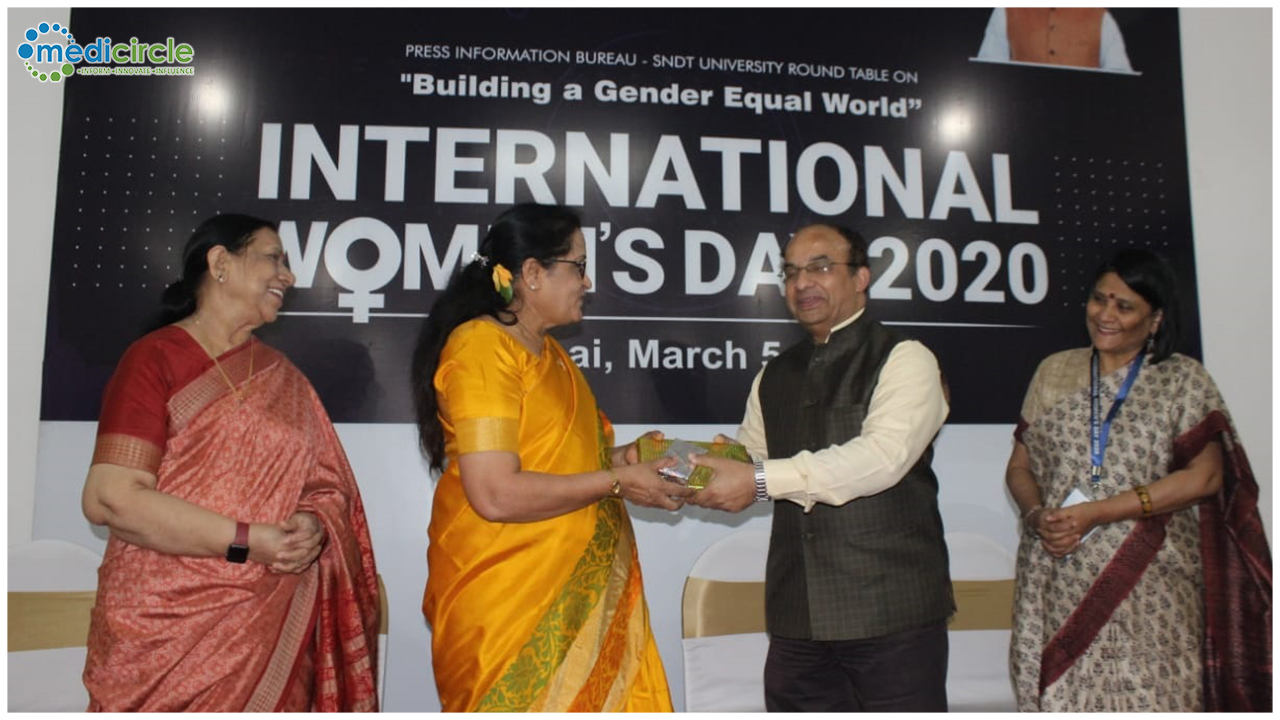Data shows women do sixty-six percent of the world's work and produce fifty percent of food, but earn only ten percent of world income & own just one percent of the world's property. This was stated by psychologist and psychotherapist Dr. Anuradha Sovani, at a round table on 'Building a Gender Equal World', organized by Press Information Bureau in collaboration with Shreemati Nathibai Damodar Thackersey (SNDT) Women's University, at the University campus in Mumbai recently. Stating a Chinese saying which goes as ‘Women own half the sky’, Dr. Sovani also mentioned that depression and mental illness are way more common in women than men.
Speaking on the occasion, Shri Manish Desai said, this is a decade when women's rights & gender-equality have taken centre-stage. A gender-equal world can be a healthier, wealthier and harmonious place. He further said that the story of women’s struggle for equality does not belong to any one activist or any one organization, but to the collective efforts of all who care about human rights. The Union Government has recognized women’s issues and women’s contribution to the country’s economy; Beti Bachao Beti Padhao campaign, mainly implemented in the cluster of states with below par child sex ratio, aims to generate awareness and improve efficiency of services for girls in the country, while Support to Training & Employment Programme (STEP) and Working Women’s Hostel scheme are intended to boost participation of women in the workforce, said the Director General.
Dr. Putul Sathe, HoD, Research Centre for Women's Studies, SNDT Women's University said, most women-related policies employ a language of entitlement rather than that of right. It is a huge challenge for the state to create a gender-just society, she further said. Dr. Nancy Fernandes stressed on the need for women to take care of their health, in order to take care of family and others. “We need to inculcate this right from the cradle. Health education in our society needs to inculcate this”, she said.
Head of Mass Communication Department, SNDT Ms. Vipra Banerjee observed that perception is the main issue with regard to gender equality. We need to work towards changing the dominant societal mentality which refuses to accept women’s superiority at the workplace, she said.
Highlighting the fate of differently abled women in the country and elsewhere, Dr. Smriti Swaroop remarked that women with disabilities experience double discrimination, firstly for being a woman and on top of that for being disabled. They face a high rate of poverty, lack of access to education, employment and health services, especially in rural areas. The struggle to bring them to the mainstream has been a difficult one, stated Dr. Swaroop.
Dr. Shraddha Naik remarked that media tends to highlight sportswomen as women first, and then as sportspersons. This practice of biological determinism, which is rampant in sports, should stop, she argued. Seconding this, Dr. Sovani remarked that this kind of Round Table bolsters the case for continuous efforts towards gender equality.

 Several women-centric issues were discussed in the event by several eminent personalities like gender inequality, lack of opportunities in education, health, sports etc.
Several women-centric issues were discussed in the event by several eminent personalities like gender inequality, lack of opportunities in education, health, sports etc.











.jpeg)











.jpg)








